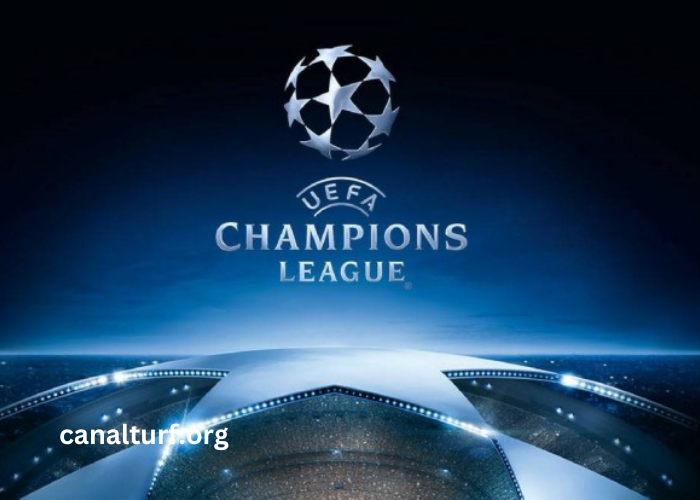The UEFA Champions League is the pinnacle of club football in Europe, where the best teams from across the continent battle it out for the most prestigious trophy in club football. From its origins to its modern-day significance, this article provides a thorough exploration of the UEFA Champions League, including its history, format, key teams, and impact on global football.
What is the UEFA Champions League?
The UEFA Champions League is an annual club football competition organized by the Union of European Football Associations (UEFA). It is considered the most prestigious and high-profile football tournament in Europe, featuring top clubs from across the continent.
The History of the UEFA Champions League
The competition was originally known as the European Cup and was established in 1955. It was rebranded as the UEFA Champions League in 1992, marking a new era of the tournament with expanded teams and increased media coverage.
Key Historical Milestones
- 1955: The European Cup was created, with Real Madrid winning the inaugural title.
- 1960s-1970s: Teams like AC Milan and Liverpool established their dominance.
- 1992: The European Cup was rebranded as the UEFA Champions League.
- 2000s-Present: The tournament evolved into a global spectacle with teams like Barcelona, Manchester United, and Bayern Munich achieving notable successes.
The Importance of the UEFA Champions League
The Champions League is more than just a football tournament; it is a global phenomenon that impacts clubs, players, and fans worldwide.
Why It Matters
- Prestige: Winning the Champions League is the pinnacle of success for European clubs.
- Financial Rewards: The competition offers significant financial rewards through prize money, sponsorships, and increased revenue from matches.
- Global Exposure: The Champions League offers unparalleled global exposure for players and clubs.
How the UEFA Champions League Works
The UEFA Champions League follows a specific structure that determines how teams progress through the competition.
The Competition Format
1. Qualification Rounds
Teams that do not automatically qualify for the group stage must go through several rounds of qualification. This includes:
- Preliminary Round: The first step for lower-ranked teams.
- First Qualifying Round: Winners advance to the next round.
- Second Qualifying Round: Successful teams move forward.
- Third Qualifying Round: The final qualification hurdle before the playoff stage.
2. Playoffs
Teams that advance from the qualification rounds enter the playoff stage. The winners of these matches secure a place in the group stage.
3. Group Stage
The group stage features 32 teams divided into eight groups of four. Each team plays six matches, and the top two teams from each group advance to the knockout stage.
- Group Matches: Teams play a round-robin format against each other.
- Points System: Teams earn points for wins, draws, and losses.
4. Knockout Stage
The knockout stage determines the finalists through a series of elimination rounds.
- Round of 16: The top two teams from each group face off.
- Quarter-Finals: The winners advance to the semi-finals.
- Semi-Finals: The last four teams compete for a place in the final.
- Final: The two remaining teams vie for the Champions League trophy.
5. Final
The final is a single-match decider to determine the winner of the UEFA Champions League.
Key Teams in the UEFA Champions League
Over the years, certain teams have become synonymous with success in the Champions League. These clubs have a rich history of achievements and are frequently seen as strong contenders.
Top Teams and Their Achievements
- Real Madrid: The most successful club in Champions League history, with 14 titles.
- AC Milan: Known for their historic success, with 7 Champions League titles.
- Liverpool FC: A storied club with 6 Champions League titles.
- FC Bayern Munich: A dominant force with 6 titles.
- Barcelona FC: A team with a modern era of success, securing 5 Champions League trophies.
Famous Matches and Moments
The Champions League has witnessed some of the most memorable matches and moments in football history.
Iconic Matches
- 1999 Final: Manchester United’s dramatic comeback win against Bayern Munich.
- 2005 Final: Liverpool’s “Miracle of Istanbul,” where they came back from 3-0 down to win against AC Milan.
- 2012 Final: Chelsea’s triumph over Bayern Munich in a dramatic penalty shootout.
The Impact of the UEFA Champions League
The Champions League has a profound impact on football beyond just the games themselves.
Global Influence
- Inspiration for Young Players: The competition inspires aspiring footballers around the world.
- Economic Impact: Significant financial contributions to clubs and local economies through matches and merchandise.
- Cultural Impact: The Champions League shapes football culture, with fans eagerly following the matches and celebrating the successes of their teams.
Betting on the UEFA Champions League
For many fans, betting on the Champions League adds an extra layer of excitement to the competition.
Popular Betting Markets
- Match Winner: Betting on which team will win a specific match.
- Top Scorer: Wagering on who will be the top goal scorer of the tournament.
- Outright Winner: Betting on which team will win the Champions League trophy.
- Group Stage Predictions: Betting on which teams will advance from the group stage.
- Correct Score: Predicting the exact final score of a match.
Tips for Successful Betting
- Research Teams and Players: Study current form, injuries, and team dynamics.
- Analyze Previous Matches: Look at past encounters between teams.
- Understand Odds and Markets: Familiarize yourself with different types of bets and odds.
- Follow Expert Predictions: Use tips from experts and analysts.
How to Watch the UEFA Champions League
Watching the Champions League is a thrilling experience, with numerous options available for fans around the world.
Where to Watch
- Television Broadcasts: Many sports networks broadcast Champions League matches live.
- Streaming Services: Online platforms offer live streaming of matches.
- Official UEFA Website: The official website provides updates, highlights, and match details.
Viewing Tips
- Check Schedules: Stay updated on match times and dates.
- Follow Live Updates: Use live score apps for real-time updates.
- Join Fan Communities: Engage with other fans through social media and forums.
The Future of the UEFA Champions League
The Champions League continues to evolve, with changes and innovations shaping its future.
Upcoming Developments
- Expansion of the Competition: Plans to expand the group stage and introduce new formats.
- Technological Advances: Innovations like VAR (Video Assistant Referee) to improve the accuracy of decisions.
- Increased Global Reach: Expanding the competition’s presence and fan base worldwide.
Potential Changes
- Format Adjustments: Ongoing discussions about modifying the competition format.
- New Technologies: Incorporation of new technologies for better fan engagement and match analysis.
Conclusion
The UEFA Champions League stands as the most esteemed club football competition in the world. Its rich history, exciting format, and significant impact on global football make it a focal point for fans, players, and teams alike.




